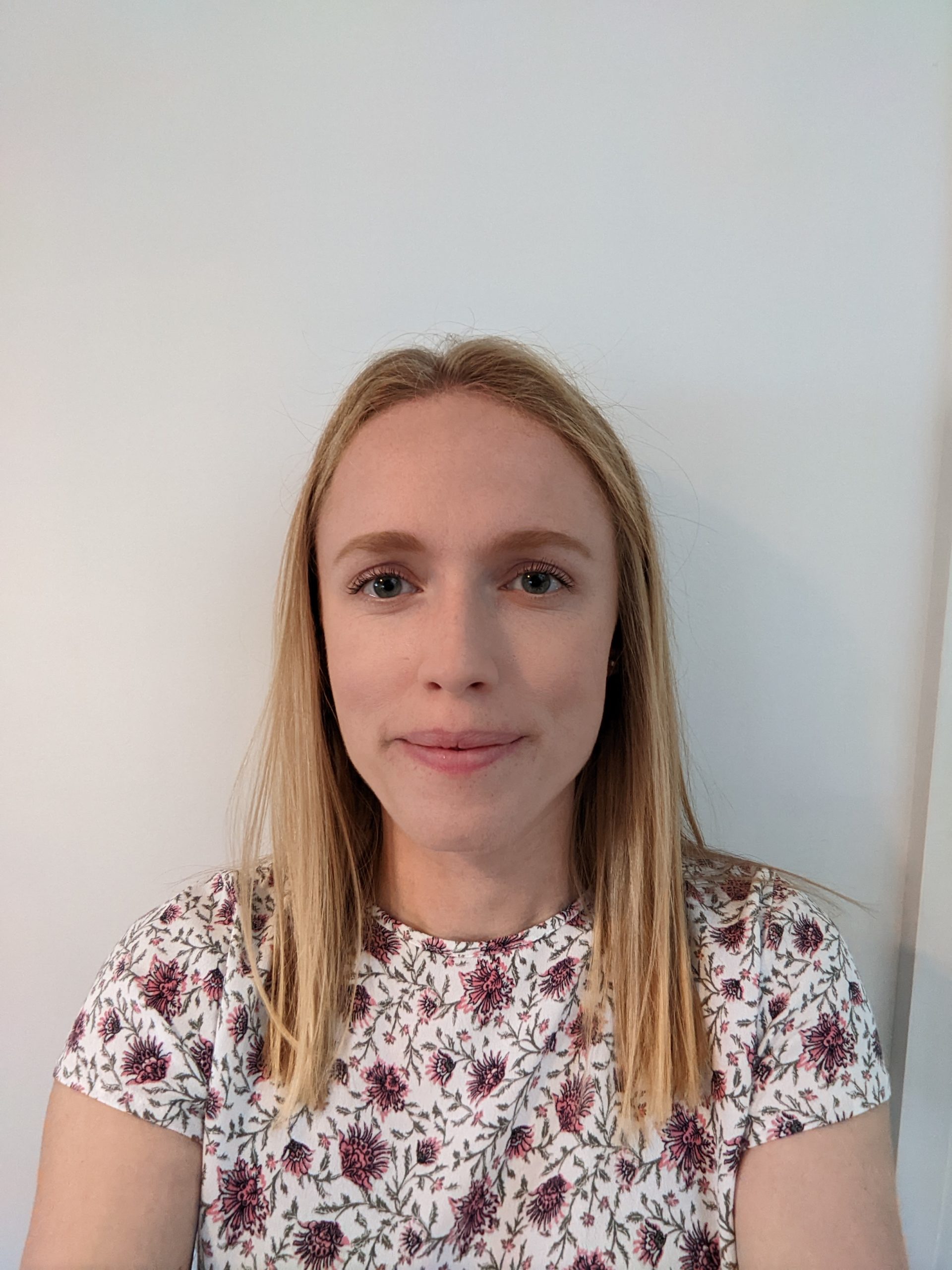

Inspirational Story
Jemma King
How did you become a dietitian?
At school, I knew I needed to do biology and chemistry A-levels to access a lot of the dietetic courses, so I chose those subjects. I had some work experience at Harrogate Hospital where I work now, so I spent the day with the dieticians there. Shadowing what they were doing, and I did some volunteering. At lunchtime, when I was a sixth former I used to help with mealtime assistance for people in the hospital.
I’m from Yorkshire, but I’ve got family down South and was quite interested in going to London for a bit. So, I did my undergraduate degree at King’s College London straight from school and then came back up to work in Yorkshire.
Why Dietetics? And why specialise in Diabetes?
I knew I wanted to work in health care, helping people. My mum is a physio, so she helped to introduce me to the AHP world. I think because I always had an interest in nutrition and health programmes and I love cooking and talking about food, I was always drawn to that side of things. I suppose that then introduced me to dietetics.
I had a general role in hospital and community for a bit and then worked in mental health for four years before moving into diabetes. I suppose it’s particularly focused on science and I really enjoy giving education around the biological and physiological side of the condition. There’s lots of maths as part of the job in terms of carb counting and supporting with insulin dosage adjustments which plays to my strengths.
In diabetes there’s a really strong MDT component and I really like the fact that you’re working day-to-day with nurses and doctors. I’m the only dietitian on the team and I think that’s quite refreshing, working with other professionals and feeling quite valued as part of that team.
I think there’s a lot of scope to really have a big impact on people’s lives. Given diabetes and the varying types of long term and chronic conditions, there’s lots of different areas of people’s lives that you can influence. I work with lots of different ages, from young adults, right from when they’re coming up from paediatrics, up to patients into their 90s, I think that’s nice that I’m working with a huge population group.
I previously worked in mental health, and I think all of those skills that I’ve developed from that has been really helpful going into diabetes. It was quite a nice transition because there’s so much overlap in this specialty with mental health, because people are managing these long-term conditions and I think I was just really attracted to working in diabetes. I enjoy that there is lots of group work, I do one to one clinics, and group clinics groups. I was kind of less drawn to being ward based, so it kind of just ticked a lot of boxes.
I think there's a lot of scope to really have a big impact on people's lives. Given diabetes and the varying types of long term and chronic conditions, there's lots of different areas of people's lives that you can influence
What does an average day look like in your role- What are your responsibilities?
Typically, I might have 1 to 1 clinics, that might involve someone with type one diabetes, and I’ll support them with carbohydrate counting education. I work with nurses who will educate on injection techniques, the doctors will be reviewing any of the medications involved and any conditions, so collectively we help to form a care plan for that patient.
We might have a clinic of around six patients, and we will use a MDT approach with each of them. That might be one part of my day and then I might have a group in the afternoon. For example, one of the groups I help to deliver is the gestational diabetes group for any ladies who’ve been diagnosed in pregnancy. I run this group with our specialist diabetes midwife, we present a PowerPoint and make it an interactive session. We’ll go over what people eat and the guidance around managing their condition when they’re newly diagnosed.
Between clinics I complete my admin from clinics, writing letters and triaging any referrals that come through from consultants, diabetes specialist nurses and GP practises to see if they’re appropriate for our service and which clinic they would fall best in.
I might attend a meeting if there’s one on that day, whether it’s with the dieticians or with the diabetes team to discuss complex cases. And then if I’ve got any time outside of those day-to-day activities, I would be looking at CPD and service development, developing resources, audit work, that sort of thing.
What skills and attributes are important?
I think one of the most important things is having a caring, non-judgmental attitude with patients. This is especially important in my role as I’m likely going to be working with them their whole life and they’ll be dipping in and out of the diabetes service. I’ve not been working here for very long and I’ve already seen people from a few years ago and discharged them, and then they’ve come back in and we already have that kind of foundation and understanding of their interests and things like that. This makes it a lot easier to then delve a bit deeper in terms of their diabetes management once they’re feeling a bit more comfortable with you and you’ve built that trust. I find having an analytical mind is helpful, as well as critical thinking.
Good communication, whether that’s one to one or group facilitation skills and being a strong communicator with your team members. Every week I’ll bring cases to the rest of the team, so feeling comfortable to be able to do that is important, so that we can get the best possible outcome. Prioritisation skills are still important with all of the dietetic areas, but because you’re juggling lots of different types of clinics and doing triages and service development as well, it’s just trying to work out what to focus on for that day.
I think one of the most important things is having a caring, non-judgmental attitude with patients. This is especially important in my role as I’m likely going to be working with them their whole life
What do you enjoy most about your role?
I think I enjoy knowing I can have a direct impact on someone’s life quite quickly with diabetes. Compared to nutrition support roles it takes more time for people to see results, such as gaining weight and their nutritional status improving or weight loss and reduction of other conditions. Whereas with diabetes you can see a faster impact through implementing guidance around say exercise. Patients can see they’re now performing to the best of their ability because of their sugars being within range, that can be instant, once they’ve got the tools that they need to do that. I think it’s just having that impact in so many different areas of their life quite quickly if they’re engaged.
The BDA’s theme for dietitian’s week is the future of dietetics, what do to see is the future of dietetics?
Working a lot more with and alongside new technologies. I’ve been working in this role for 2 1/2 years and there’s already been so much change in the way that we work. Changes in how I give my advice and the type of advice that we give for type one diabetes patients. Diabetes and pregnancy patients going on to insulin pumps and using glucose sensors and the new hybrid closed loop technology will be a huge part of our role. I think helping to lead the way with supporting patients with managing this technology, how to make the most of it and how to adjust. There are also new approaches using new apps with AI to help with carb counting using online platforms to just make it more accessible and effective for patients. I do think that’s going to be a big part of dietetics and especially in diabetes care in the future.
Do you think you’ll stay working as a specialised diabetes dietitian?
Yes. I had always been quite keen to work in diabetes and it just so happened that. The mental health job came up around the time that I was also looking for the diabetes jobs and it just kind of worked out better. Me getting inside at the time because that was just another interest for me. But it was still always on my radar to come into this eventually and I’m keen to stay in it now. There’s just so much crossover, the impact of diabetes on mental health and then mental health on the way that people manage their diabetes. So, it’s quite nice that, I’ve been able to keep all of that I took from the last job and use it now.



